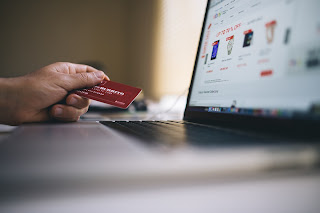Money Management Tips For Students Abroad
Being an international student might make it hard to keep track of your money. With the right amount of forethought and knowledge to study abroad, though, you can ensure that you have enough money to cover your monthly bills, as well as treat yourself sometimes.
1. Open a bank account in your home country
The first order of business is. The first step in ensuring your financial stability as a newcomer to a nation is to open a bank account. In order to make an educated choice, your IDP counsellor may provide you with information on the best banks in your new country. Since banking services differ from institution to institution, it's important to choose a financial institution that provides the most value to its student customers and doesn't impose excessive fees when making international wire transfers.
2. Plan your finances ahead of time
Recognizing one's financial standing and developing a workable budget are both crucial. Rent, utilities, groceries, transportation, data costs, leisure, study abroad materials, and travel should all be accounted for. Putting aside money each month for emergencies or the unexpected is a good idea.
3. No more fooling about; it's time to become savvy
Costs might add up quickly while you're away at university, but with little forward thinking, you can manage just fine. The greatest approach to learning your needs and desires is to write them down in order of importance. Learn to budget your funds more wisely. Everyday costs may be kept to a minimum by measures such as:
- Having a roommate
- Obtaining student identification cards with discounts
- Get your hands on digital or used copies of books.
- Sign up at the local library.
- Purchase passes for public transportation.
- Don't miss out on discounts!
- Shop at local establishments.
4. Get a job to afford your extravagant ways
In the majority of nations, you are permitted to work up to 20 hours per week during the school year and 40 hours per week during the summer. Verify that you are authorised to work on your student visa before seeking employment. You'll be better able to handle your finances and improve your marketability to employers with the aid of this extra money. I would advise you to research the tax laws of your host country in advance to see whether you will be required to pay any income tax as a study abroad student.
5. Make use of your position as a student
When you study abroad, obtain your student ID as soon as possible. You may save money on meals, shopping, movies, public transit, and entertainment by using this card. In reality, several websites provide excellent student discounts on activities and purchases.
6. Be aware of your next steps and where to go
Find out what you're doing that is draining your resources without providing any return. Try not to go on as many shopping binges or dine at pricey restaurants if money is tight. Instead of going out, why do you invite some friends home to play a game of Monopoly?
7. Become a skilled chef
That makes no sense. Spend your money on groceries instead of dining out. Our estimates show that you may cut your grocery bill by 30-50% by following these guidelines. You may save time by not having to cook every day if you prepare meals in bulk and store them in the refrigerator for later use.
8. Discover the area
There are many exciting attractions and activities to partake in at every given location, and most of them cost nothing or very little to enjoy. Find other people who are interested in visiting similar locations, form a group, and go off!
It is easy to manage finances if you can track all your daily expenses. Niyo Global app allows you to look at your everyday transaction history, helping you keep a count of each penny spent as a study abroad student. Download the app and get your account opened today.
Also Read - 5 Ways To Save Using Your Global Card As A Student




Comments
Post a Comment